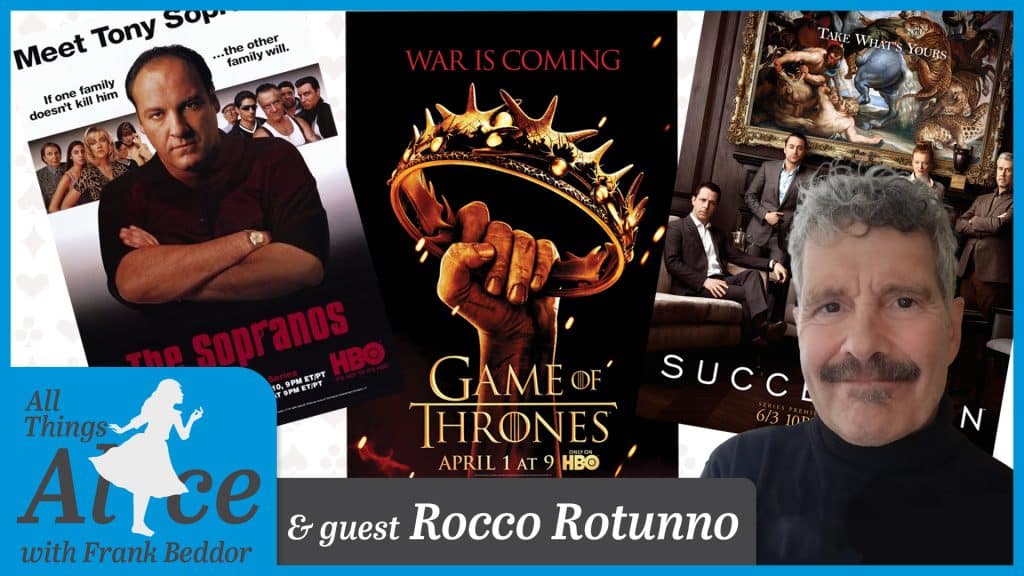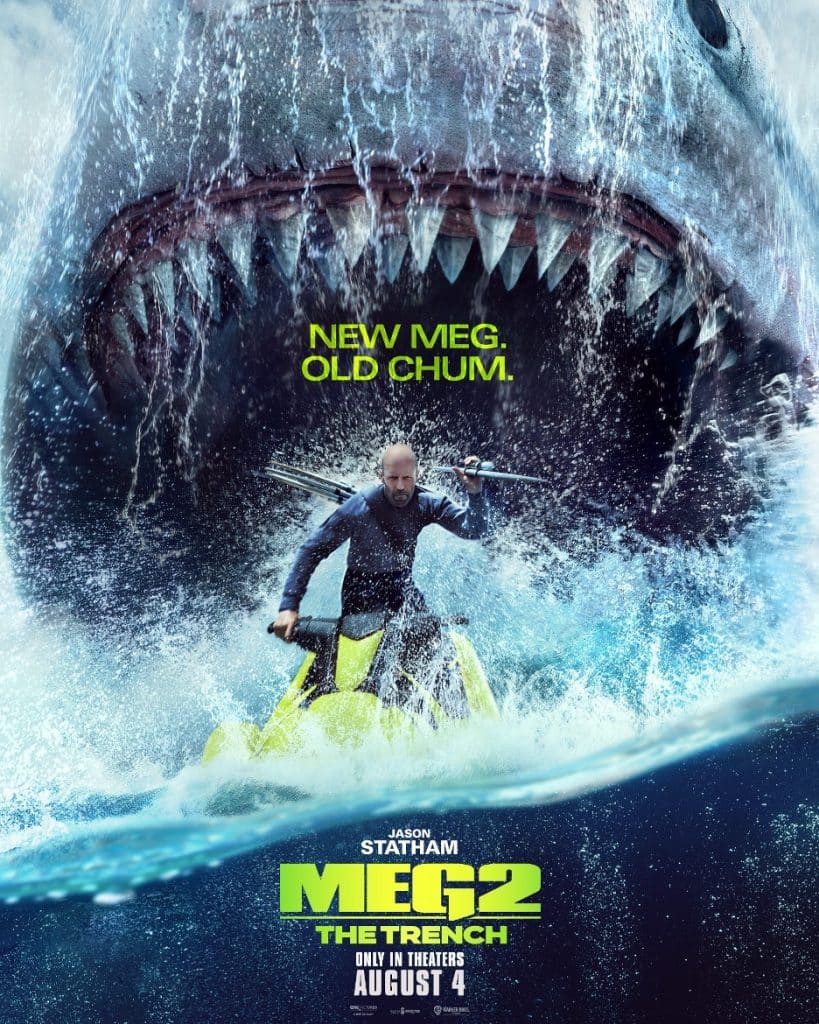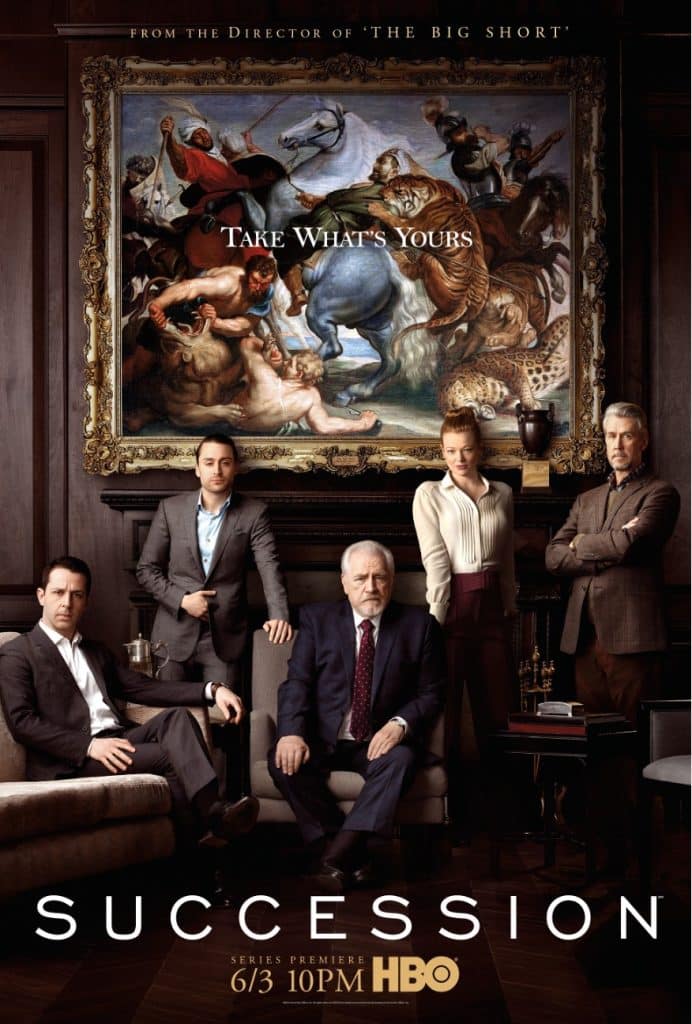As an amateur scholar and die-hard enthusiast of everything to do with Alice in Wonderland, I have launched a podcast that takes on Alice’s everlasting influence on pop culture. As an author who draws on Lewis Carroll’s iconic masterpiece for my Looking Glass Wars universe, I’m well acquainted with the process of dipping into Wonderland for inspiration.
The journey has brought me into contact with a fantastic community of artists and creators from all walks of life—and this podcast will be the platform where we come together to answer the fascinating question: “What is it about Alice?”
For this episode, it was my great pleasure to have Rocco Rotunno join me as my guest on this episode! Read on to explore our conversation and check out the whole series on your favorite podcasting platform to listen to the full interview.

Frank Beddor:
Hey, Rocco, mastermind of the tagline Welcome to the show. Good to see you, man.
Rocco Rotunno:
Yeah, it's been a while. I was looking up today our first project. It's been a while. We go back to February of ‘97.
FB:
What? Yeah, Wicked, right?
RR:
It was for Second Wife. Yes, a Cannes sell sheet. It featured Julia Stiles, as you recall, in a small sort of breakout role.

FB:
Julia was clearly going to be a movie star. Because we started that film, we started shooting that film at the end of ’96 or ‘97, we were finishing and I just did not like that title, The Second Wife. You know? anything with “wife” felt, you know, it felt always going to be a melodrama about divorce. So, I came to you to retitle it correct?
RR:
I don't think it was part of that. What I was a part of was coming up with a synopsis for your one sheet, a sell sheet, I think for Cannes. Now, the irony, was that when you invited me to the screening, my wife and I were sitting in back of Julia Stiles. She was really, really good. And you could tell she had a career, and I kind of tapped her on the shoulder afterward. And I said, “Well, congratulations on your brilliant coming career”. And the ironic thing was that about six months or maybe a year later, I got an assignment to work on 10 Things I Hate About You, which was for Disney Touchstone so that came out in probably was filmed in ‘98 After your film came out ’99. She happened to be with another unknown guy named Heath Ledger.
FB:
Yeah, little-known guy, Heath Ledger. I know. One of the reasons that I love doing this podcast is because I often learn more about my fellow writers and their backstories. Your career and your job are really fascinating because I don't think it gets as much press. You guys are behind the scenes. Just kind of walk us through all the different things that you're called upon to do as a freelance writer in the marketing of television and movies.
RR:
So little anecdote here, we had an acquaintance of my wife, and she had known her for a few years. And when they're getting a little closer. She said, “So what is it exactly that your husband does?” And so my wife tried to explain, “he kind of writes a promotional copy in lines for films, it's kind of film marketing, film advertising”. I think she gave her one of my lines, which I'm not going to say, but let's give you a good one, the famous line from Alien. So you have a poster where you don't really know what's going on. They were really careful not to show the creature. And the poster line was “In space, no one can hear you scream”. Which is brilliant. It tells you everything. Tells you it’s in space, right? It tells you its horror in an upscale way, not in a slasher way. And it really encapsulates everything, and really did the heavy lifting. And so, the woman paused for a second, and she says, “So he gets paid for that?” And so, what I do starts with the written word or at least some sort of a concept of what a project is going to be about. And I'll get to read a script, or in some cases, there may be a semi-finished version of the film or TV show. And I'll read or watch that. And, you know, I'll make my notes about what I think it's about or what are some important things.

FB:
Part of what you do is coming up with clever, humorous, totally appropriate taglines or phrases because you have very few words. Like I just saw a one sheet for Meg, the shark movie. And the tagline was “New Meg, Old Chum”. Now, that's a pretty good tagline. And you mentioned Alien, which was a classic. And so, when you're coming up with that process, there are I would imagine, hundreds and hundreds of versions. Until the studio or whoever your partners are in the marketing, you know, say “This is the one”. That's not so easy. From my standpoint, that seems really hard, which is why I always reach out to you, what are the creative elements that you use to come up with that stuff?
RR:
The main thing that sort of starts me off is I'll write down things. I'll have some information from the client, though that in a brief, they'll say, “Well, we kind of want to sell the film this way”. So I keep an eye out for those things. Or, you might want to use some lines from the film. They kind of have an idea, maybe sometimes not so good of an idea, of how they want to sell the movie. And they want to touch on a lot of different things, perhaps. They call that writing to these buckets. So, they might say, “We have five ways we're thinking about this”. And ultimately, what happens though, is to kind of hedge their bets a little bit they'll also do some market research and have some focus groups. And so, different things can happen along the way, they may initially want to show one thing or say one thing, and I'll be called in and that'll be called, like an “exploration”, that's basically the best way to put it. Copy exploration. And yeah, I personally could work to 300 different titles or 50 to 100 or 150 taglines, then come back and do some more. And it just takes some time. It's trying to figure out you know, and more often than that ends up in the last minute.

FB:
I want to go to some of your tag lines. And I want to start with 10 Things I Hate About You because as you pointed out, that was starring Julia Stiles and Heath Ledger when he was up and coming. The movie, Wicked premiered at Sundance Film Festival, and Julia Stiles was really discovered at the Sundance Film Festival, which was in 1998. And she then went on, as you said, right after that, to do this Disney movie 10 Things I Hate About You, which you alluded to is sort of a teen rom-com setup of Shakespeare's The Taming of the Shrew. “How do I loathe thee? Let me count the ways”. That's good. That's actually good. Because, you know, in a romantic comedy, two people that clearly don't like each other, come to fall in love. Right? That's the essence of romantic comedy. So just walk us through that process for you.
RR:
Yeah, I think clients and the general public respond to things that are twists on something that's commonly known. That is familiar. So, that’s how I got to “How do I loathe thee?”
FB:
So, you work as a freelancer. Do you work with different boutique advertising agencies? They call you up and say, “Hey, this is what we're doing”, or does the studio call you directly? How does that work?
RR:
It can be either or both sometimes, but generally, I would say it's the boutique because that's what they do. The studio generally is in charge of handing it out to the boutiques and the boutiques to me, and occasionally it'll be the studio itself, but that’s rarer.
FB:
I don't want to embarrass you, Rocco, but I'm really impressed with a lot of the taglines you've done – so let’s go through some of them, and just tell us quickly, you know, what you were thinking of? What were you aiming for? So, the first one is, “Take What's Yours”. This was for season one of Succession.

RR:
Conflict, you know, what drives every story? Right?
FB:
Absolutely. Conflict. And conflict, that's going to come up a lot. And that's certainly going to come up with the next tag that everybody's gonna know, “War is Coming”. Everybody knows that is Game of Thrones. But the difference is, this was for season two. So, people had watched this first season. Tell us what the thinking was there.

RR:
Yeah, in this particular case, it's similarly done in successive seasons. And it really is the arc of the seasons together. And so, what do we want to put out there? They've been teasing war. And now it is coming and then the next season is, you know, “this one takes the throne” or something. Building on that story arc across seasons.
FB:
Here is one of my favorites. “Life's not a word. It's a sentence.” It was a while ago, but that was Oz for season one. That's very clever.
RR:
The show has in it a little bit… I don't want to say it's lite because it's about prison. But at the same time, I think especially with HBO premium, hopefully, clever, intelligent, right? You know, that's what they want.

FB:
Well, here's one of your comedies. And the tagline is “Smart, Is the New Sexy”. And smart is the new sexy is why that show is one of the biggest, most successful comedies ever. And of course, we're talking about the Big Bang Theory.
RR:
It was impossible to know it was gonna be any different than any other show, but it just gives the idea these are intelligent people, and it's not going to be your usual comedy. It's going to be a sitcom, but not a super silly lowbrow one. I mean, obviously, the people in it are all very educated. And so, you're getting something a little bit different.
FB:
Rocco, I came to you, obviously, about The Second Wife/ Wicked, but when I started writing my novel, The Looking Glass Wars, I knew it was a reimagining of Alice in Wonderland. So, I wanted to find a way to sort of capture the history, of Alice in Wonderland and culture and redefine it and re-reposition it for a contemporary audience. And, the title of books is really important. I always knew The Looking Glass Wars was going to be the title because it speaks to something very familiar, but it adds that dynamic of war and something ominous, and there's something bigger going on. And then for the next book, Seeing Redd, I knew the title. And then for the third book I was struggling for a title. And I came to you to help with all of these. So I think my question to you is, how much did your knowledge or your sense of Alice and pop culture influence any of those titles you came up with?
RR:
Well, definitely Alyss being a stronger figure, stronger girl, rather than, you know, being swept around by all these characters. She's taking charge, she wants to get her Queendom back. She's in control. I think it's just trying to get the idea of, you know, just a little shorter, a little bit more punch. So yeah, it's a little combination of your input, things I knew about the original story, but more specifically your interpretation of the story. Going back to some file, and seeing if there was something that I put down, it could work, exploration.

FB:
So, you know, for instance, there was “Burning Borders”, which I really like, and I particularly like it today for whatever reason. You also had “Cross Border”. There was “Border Rains” and “Border Power”. But you know, you're right, the exploration is great because a lot of times that exploration will produce phraseology or a couple of words that I can use in the marketing of social media that allows for like a little variation on what the story is. In that, why don't you share your history with Alice in Wonderland? How did you come to Alice? Was it through the books or the movies or something else?
RR:
Actually, through the Disney film, you know? There are many, many versions. And it was the animated Disney animated film, which, of course, they kept everything a little bit lighter. But you know, there's such classic elements to it. That's why it's continuously retold, but the story itself is classic. And you see reverberations of it everywhere. So, I think yeah, for me, that was that was the initial and then your re-invention of that story.
FB:
Well Rocco thank you so much for joining. It’s really fun to hear the stories and what went into them. I appreciate it.
RR:
Thank you Frank!